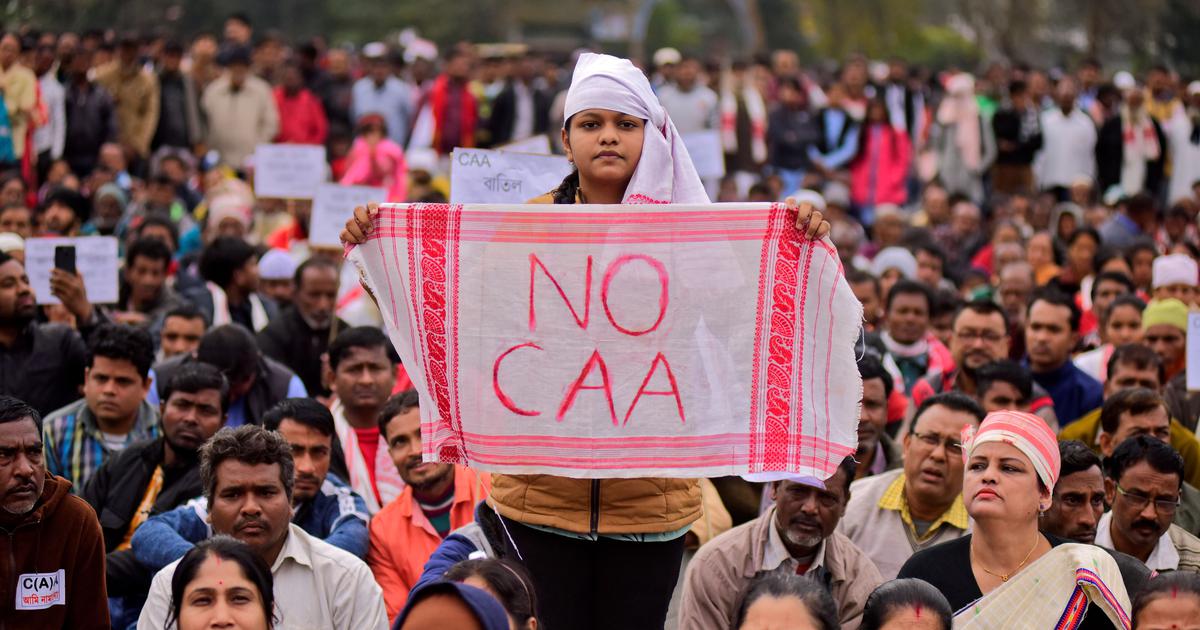
Hearing of a batch of petitions challenging Citizenship Amendment Act (CAA) will be held on 6th December, the Supreme Court posted on Monday. The Assam and Tripura governments were given two weeks to submit their reply to the petitions by a bench consisting of Chief Justice of India UU Lalit, Justices S Ravindra Bhat, and Bela M Trivedi. Additionally, it named two attorneys to serve as nodal counsel in the collection of lawsuits contesting the legality of the Act.
Advocate Pallavi Pratap, advocate for petitioner Indian Union Muslim League (IUML) and advocate Kanu Agrawal, counsel for the Central government, were nominated as nodal counsel to prepare a compilation of all relevant documents.
At least 220 petitions against the CAA were filed before the top court.
The Parliament passed CAA on December 11, 2019, following which there were protests all across the country.
A Kerala-based political party Indian Union Muslim League (IUML), Trinamool Congress MP Mahua Moitra, Congress leader and former union minister Jairam Ramesh, All India Majlis-E-Ittehadul Muslimeen(AIMIM) leader Asaduddin Owaisi, Congress leader Debabrata Saikia, NGOs Rihai Manch and Citizens Against Hate, Assam Advocates Association, and law students among others had filed a plea before the top court challenging the Act.
Kerala government also filed suit in the apex court in 2020. It became the first state to challenge CAA.
The law expedites the citizenship process for Hindus, Sikhs, Buddhists, Jains, Parsis, and Christians who sought shelter in India on or before December 31, 2014 after being persecuted for their faith in Afghanistan, Bangladesh, or Pakistan.
The top court had already warned the Centre and declined to grant a temporary order suspending the law without consulting the Centre.
The CAA does not violate any fundamental right, the Centre had said while terming the legislation legal and asserted that there was no question of it violating constitutional morality.
The petitions contended that the Act, which liberalises and fast-tracks the grant of citizenship to non-Muslim migrants from Pakistan, Bangladesh and Afghanistan, promotes religion-based discrimination.
The amendments have also been challenged on several other grounds, including violation of secularism, Articles 21 (right to life), 15 (prohibition of discrimination on grounds of religion, race, caste, sex or place of birth) and 19 (right to freedom), as well as provisions on citizenship and constitutional morality.
The plea filed by Congress leader Jairam Ramesh has said that the Act is a “brazen attack” on core fundamental rights envisaged under the Constitution and treats “equals as unequal”.
The 2019 Act revised the Citizenship Act, 1955, making illegal immigrants who meet the following criteria eligible for citizenship: (a) they are from Afghanistan, Bangladesh, or Pakistan; or (b) they are members of the Hindu, Sikh, Buddhist, Jain, Parsi, or Christian communities. Only immigrants who arrived in India on or before December 31, 2014, are included. The Northeast is excluded from the clause, per the modification, in some places.